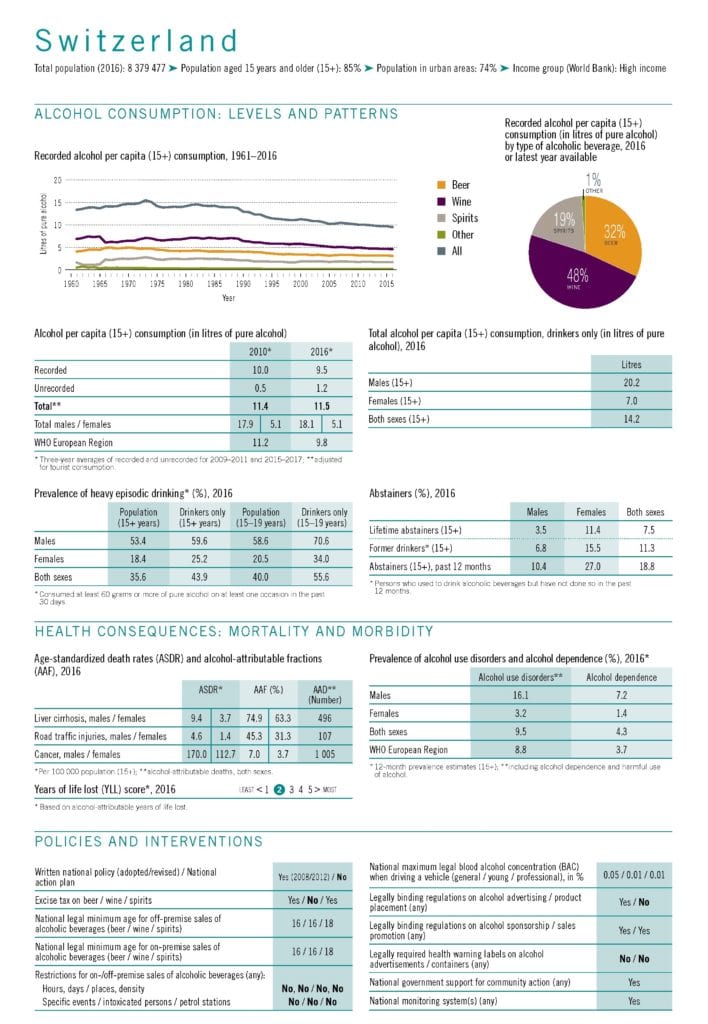The Global Drug Survey is a large scale online survey conducted across the globe. The results are not representative but provide a picture of the situation regarding drug use and harm in participating countries.
Out of the Swiss respondents,
- 46% have said they were consuming more alcohol since the start of the pandemic, and
- 41% stated they consume alcohol alone more often than before.
This indicates a serious worsening of the alcohol norm in Switzerland.
The changing alcohol norm around the world driven by lockdowns, movement restrictions and home isolation entails more alcohol consumption at home, even on video or audio conferencing; more alcohol use in front of children; more alcohol use throughout the (what used to be a) normal working day; and alcohol use to cope with anxiety and stress caused by the pandemic.
This is a harmful trend as alcohol is being normalized for at home consumption among people who used to do so rarely. The change in the norms and consumption behavior could further fuel long term alcohol harm, including mental health problems.
Retailers sell more alcohol and more people ask for help due to alcohol problems
Another article reports that retailers in Switzerland are claiming they are selling more alcohol since the pandemic began. Meanwhile, Addiction Switzerland has reported that they received more inquiries “regarding alcohol problems that arose as a result of the lockdown”.
The loss of a routine and using alcohol as an unhealthy coping mechanism to deal with the pandemic and resulting social and economic stresses could be some of the reasons the Swiss are consuming more alcohol.
The World Health Organization has specifically recommended not to use alcohol as a coping mechanism and has also provided psychosocial guidelines to deal with the pandemic.
Alcohol harm in Switzerland
As the WHO reports, the total per capital alcohol consumption in Switzerland is at 11.5 litres. This is higher than the European regional average of 9.8 litres – and Europe is the heaviest alcohol consuming region in the world.
Binge alcohol use is high among youth between 15 to 19 years of age with over half the alcohol using youth (55.6%) engaging in heavy episodic alcohol use. The figure is alarmingly higher (70.6%) for boys especially.
Swiss communities suffer from alcohol use disorder, with 9.5% of the population being registered for an alcohol use disorder and alcohol dependence is present in4.3% of the Swiss population – also higher than their European average.
Despite the obvious harm, the country has one of the lowest minimum age limits for alcohol use with 16 years for beer and wine consumption and 18 for spirits consumption. There are also no restrictions on alcohol sales – making alcohol easily and widely available.
Considering the increasing burden of alcohol along with the COVID-19 pandemic, making alcohol policy solutions a priority would help to prevent problems from accelerating further.

